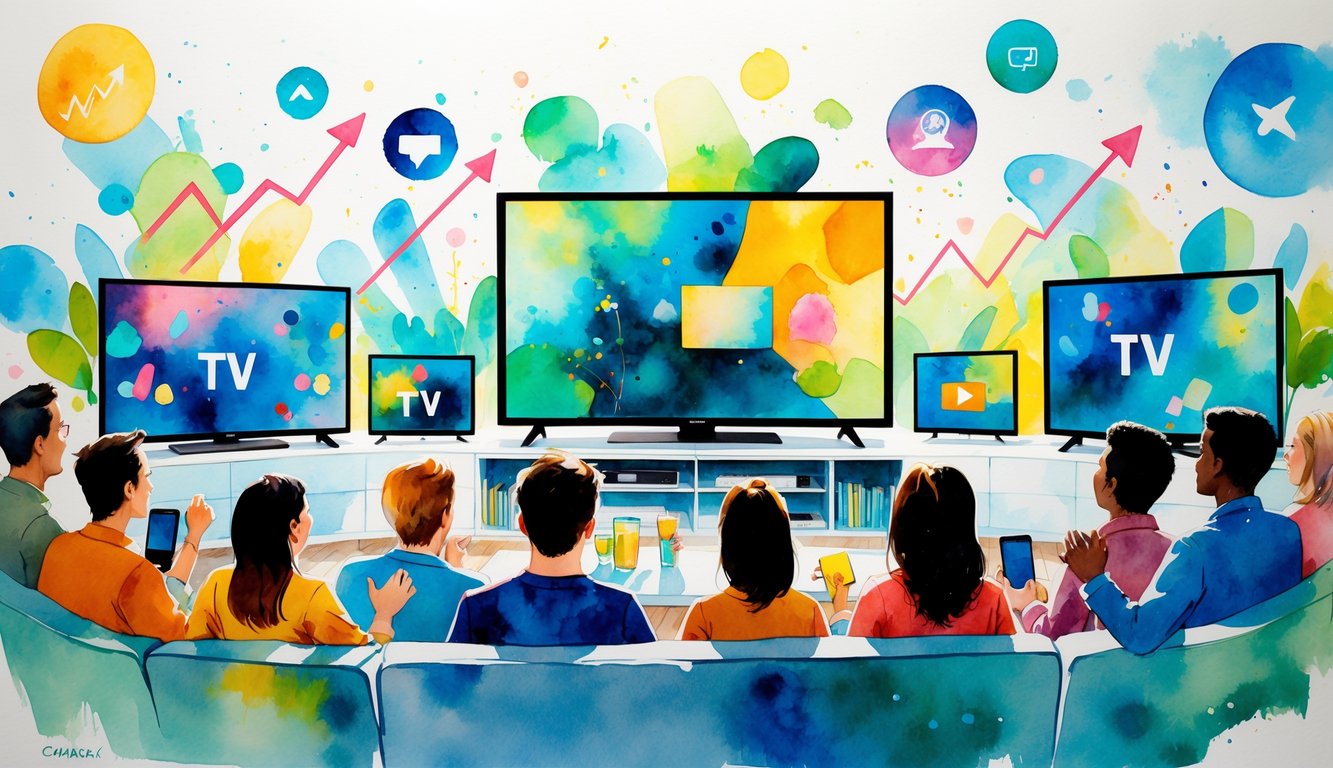
Reality Television’s Resurgence
Everything’s getting greenlit. Nobody knows why. Reality TV keeps climbing, people are glued to strangers fighting about groceries or falling in love in glass cubes. The ratings don’t just hint—they scream. “Make more of this!” And execs listen.
Originality in Reality Formats
Who thought locking people in a house, stealing their phones, and filming them eating chips would become prime-time TV? There’s no strategic memo for this. Reality TV just mutates, reinvents itself. Remember when dating shows used Skype for “international” drama? Now, streaming platforms spit out unscripted originals faster than I can keep up. The old, obviously staged stuff is gone.
A network exec told Variety that “real stakes and unfiltered personalities” drive the hits now because viewers spot fakes instantly. You get these weird hybrids—food shows crossed with therapy sessions—and suddenly millions are watching. Nielsen says these oddball formats are carving out new categories, sometimes even crashing servers during live events. On-demand is fine, but the return of live chaos is real. People want the mess, the “oops” moments, the stuff you can’t script.
Audience Connection and Trends
Look, I’m still not over the fact that my aunt’s votes on some random talent show app probably shaped TV more than any critic’s thinkpiece. The stats are wild—apparently reality TV snagged 39% of the genre share last year (yep, Platform Magazine pulled that one, so blame them, not me). I guess we’re all just tired of doomscrolling and want fake romance and compost bins on screen. Did anyone see romance shows becoming the main event? I didn’t.
People now obsess over “authenticity,” whatever that means—like, do you really buy that those confessionals aren’t edited into oblivion? Me neither. Social commentary and eco-anxiety sneak into everything; I saw a contestant get a recycling challenge and suddenly Gen Z acts like it’s the Oscars. Analytics people keep yelling about “interactive obsession.” Fans vote live, binge outtakes, ignore the winner’s speech. Producers? They’ll chase any trend that smells like a new gold rush—interactive short-form, hyper-niche communities, whatever. If it looks viral, someone’s already pitching it.
Platform Power: Broadcasters vs. Streaming Originals
So, three weeks ago, my wifi died mid-episode and I lost my mind. Started scribbling notes: who’s actually winning—old-school broadcasters clinging to “event” nights, or streamers digging deeper into algorithm hell? Every time I check, the numbers make less sense. The gap between what’s planned and what actually blows up just keeps getting weirder.
Broadcaster Strategies for Genre Hits
Okay, here’s the part that makes me want to scream—networks like NBC and CBS keep insisting that scripted dramas are still king. But they know these genre cycles last about as long as a TikTok trend. They swap out pilots constantly, hoping some Frankenstein crime-procedural-with-ghosts will stick. Holiday miniseries? Hallmark’s entire business model is December, I swear.
Now, they’re glued to “live-plus-same-day” Nielsen charts. But half the shows that spike overnight—like those endless police procedurals—just flop on streaming. Not everything gets resurrected in some syndication block, and Parrot Analytics keeps showing that broadcasters still pull bigger audiences per show, but it’s all old people. Under 35? They don’t even own TVs. The “genre” everyone wants? Doesn’t exist. Next year, someone will reboot a reboot, and we’ll all pretend to care.
Case Studies: Successful Originals
Honestly, it’s always the show nobody bets on that goes nuclear and makes execs regret passing. Streamers? They’ll greenlight anything—talking animals, Victorian vampires, whatever. In Q3 2024, streaming originals made up 45.5% of the most in-demand U.S. titles. (You want the numbers? benlabs.)
Remember “Squid Game”? Suddenly everyone’s chasing weird indie genre stuff. But half these “hits” get canceled after two seasons. Streamers bake “planned obsolescence” into the contracts because they’re terrified their own data will betray them. Greenlighting is just chaos. Sometimes it’s one viral meme, a TikTok trend, or some cameo nobody understands. The pattern? There isn’t one. Ask anyone who’s lost a favorite show at its peak—total heartbreak, zero logic.
The Business Side: Production, Costs, and Cancellations
Ever wonder why a show vanishes mid-season or some ridiculous idea gets millions? Money. Production costs are out of control and networks gamble on whatever’s trending. It’s not logical. It’s not fair. It’s just chaos and weird incentives.
Production Costs and Risk Assessment
Someone told me studio budgets are shrinking. Sure. But then New Jersey dumps hundreds of millions so Netflix can build a $900 million studio. Math isn’t real in Hollywood. Studios claim they cut production by 9% and marketing by 6% last year (The Hollywood Reporter said so, but who believes any of it?). Meanwhile, a virtual production stage still costs $25k a day and you can’t even get free water on set.
I froze on a set last winter because the execs axed the heating to pay for better VFX. Virtual production, LED walls, all that stuff—supposed to save money, right? Ask a line producer. The costs are brutal. Only a few big studios can handle the risk. The rest? Survival mode. Bet wrong on the next big genre and you’re out before lunch.
Why Shows Get Cancelled or Greenlit
Executives will never say it, but most cancellations happen over Slack, probably mid-coffee. Sometimes a show dies because the spreadsheet hates your lead’s Q-score. Business Insider flagged a 20% drop in TV production for 2024. (Yeah, compared to a strike year, so who knows.) The “green light committee” is supposed to analyze everything, but honestly? One viral TikTok about ugly socks and your show’s toast.
Executives kill shows earlier now, sometimes after just a couple episodes. Cheap wins. Niche hits slip through when nobody’s watching. The real drama? It’s never on screen. Try getting canceled the same day your Emmy nomination drops—ask around, it happens.



